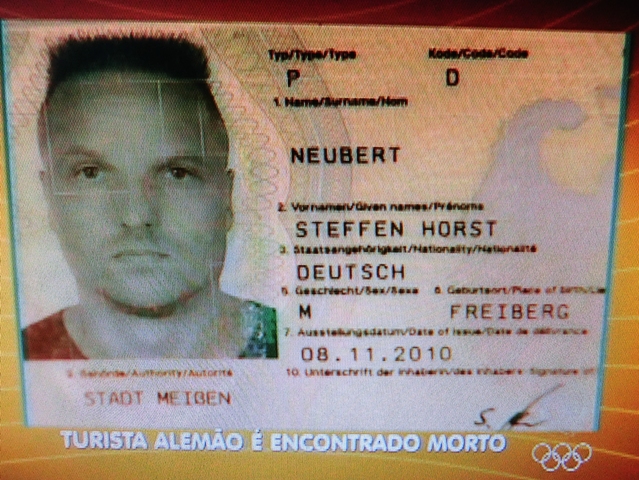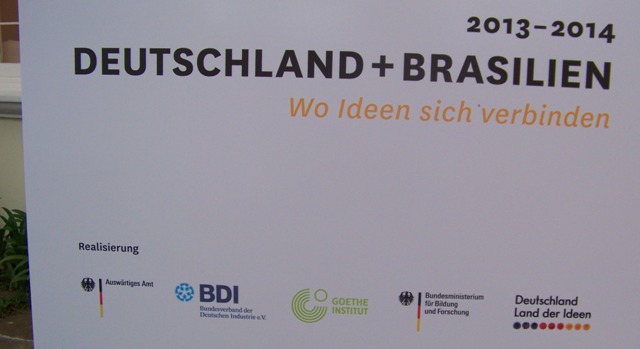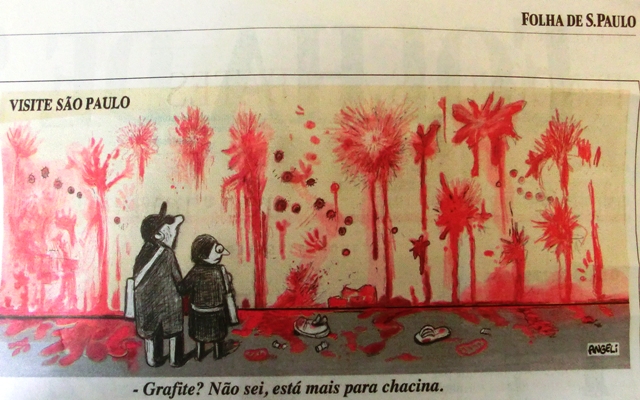Klaus Hart Brasilientexte
Aktuelle Berichte aus Brasilien – Politik, Kultur und Naturschutz
Brasilien, Confederations Cup und die US-Reisewarnungen. „Brazil’s murder rate is more than four times higher than that of the United States, and rates for other crimes are similarly high.“ Deutsche Reisewarnungen. Deutschlandjahr 2013, Frankfurter Buchmesse – Gastland Brasilien.
2013 FIFA Confederations Cup – June 12, 2013
Crime is a serious and pervasive concern for visitors and residents of Brazil. Brazilian police and media report that the crime rate remains high in most urban centers and is also growing in rural areas. Brazil’s murder rate is more than four times higher than that of the United States, and rates for other crimes are similarly high.
Street crime and ATM/credit card fraud are the two most likely security risks to impact visitors. While the risk is greater during the evening and at night, street crime also occurs during the day, and safer areas of cities are not immune. Incidents of theft on city buses are frequent. The incidence of crime against tourists is greater in areas surrounding beaches, hotels, bars, nightclubs, and other tourist destinations. Similarly, in airports, hotel lobbies, bus stations, and other public places, pick-pocketing and theft of hand-carried luggage and laptop computers are common. Visitors are encouraged to “dress down” when in public and avoid carrying valuables or wearing jewelry or expensive watches. Visitors should keep a copy of their passports with them while in public and keep passports in a hotel safe or other secure place. Visitors should also carry proof of health insurance.
Caution should be exercised around banks and ATMs. Credit and ATM card fraud and cloning are significant and growing problems for banks and financial institutions in Brazil. Visitors should routinely monitor bank accounts during and after their visit. A phenomenon known as “quicknapping” or “express kidnapping” is an ongoing criminal activity in which ATM users are kidnapped at gun point and taken to several ATMs to withdraw cash before being released. Visitors should only use well-lit ATMs in heavily trafficked areas and be alert when exiting banks or using ATMs. Brazilian police recommend compliance if confronted by an assailant threatening violence, as this generally de-escalates the situation.
U.S. government employees are restricted from traveling to all (unpacified) shanty towns, or “favelas,” in Recife, Rio de Janeiro, and Sao Paulo. This restriction does not include commonly used transit routes that pass near or through favelas.
“Südamerikas Vorzeigestaat” – Der Spiegel 2012.
“Kein anderes aufstrebendes Land balanciert Demokratie und breit gestreuten Wohlstand so gut aus wie Brasilien.” Financial Times Deutschland
Deutsche Reisewarnungen: http://www.hart-brasilientexte.de/2009/03/09/das-menschenrecht-auf-personliche-sicherheit-unter-lula-die-deutsche-botschaft-in-brasilia-informiert/

2012: 47-jähriger Mann aus Freiberg/Sachsen wurde bei Ilheus/Bahia tot aufgefunden – die Polizei ging von Erdrosseln aus. Deutsche Medien meldeten nichts darüber. “Turista alemao é encontrado morto”.

http://www.welt-sichten.org/artikel/221/der-hoelle-hinter-gittern
2011 noch kein Protestklima in Brasilien: http://www.hart-brasilientexte.de/2011/07/23/brasiliens-schriftsteller-zuenir-ventura-wir-fragen-uns-weiterhin-warum-die-brasilianer-nicht-auf-die-strasen-gehen-um-gegen-die-welle-der-korruption-zu-protestieren-die-das-land-heimsucht-pr/
Frankfurter Buchmesse 2013: http://www.hart-brasilientexte.de/2012/10/17/frankfurter-buchmesse-2013-gastland-brasilien-literatur-und-landesrealitaet-keinerlei-veranstalterhinweis-auf-gravierende-menschenrechtslage-auf-daten-und-fakten-von-amnesty-international-und-bras/

Ausriß,Karikaturist Angeli: “Besuche Sao Paulo”. “Graffiti? Ich weiß nicht, sieht mehr nach Blutbad aus.” Folha de Sao Paulo, größte Qualitätszeitung Brasiliens, 25.11. 2012, Tag der Friedensdemonstration der katholischen Kirche.
Fotoserie zur Gewaltsituation in Brasilien: http://www.hart-brasilientexte.de/2010/09/05/brasiliens-zeitungen-eine-fundgrube-fur-medieninteressierte-kommunikations-und-kulturenforscher/
NEU: Fotoserie Gesichter Brasiliens
Links zum Thema Ukraine
Fotostrecken Wasserfälle Iguacu und Karneval 2008
interessante Links
Seiten
Ressorts
- Kultur (6.975)
- Naturschutz (1.101)
- Politik (12.729)
Suchen
RSS-Feeds
Verwaltung


